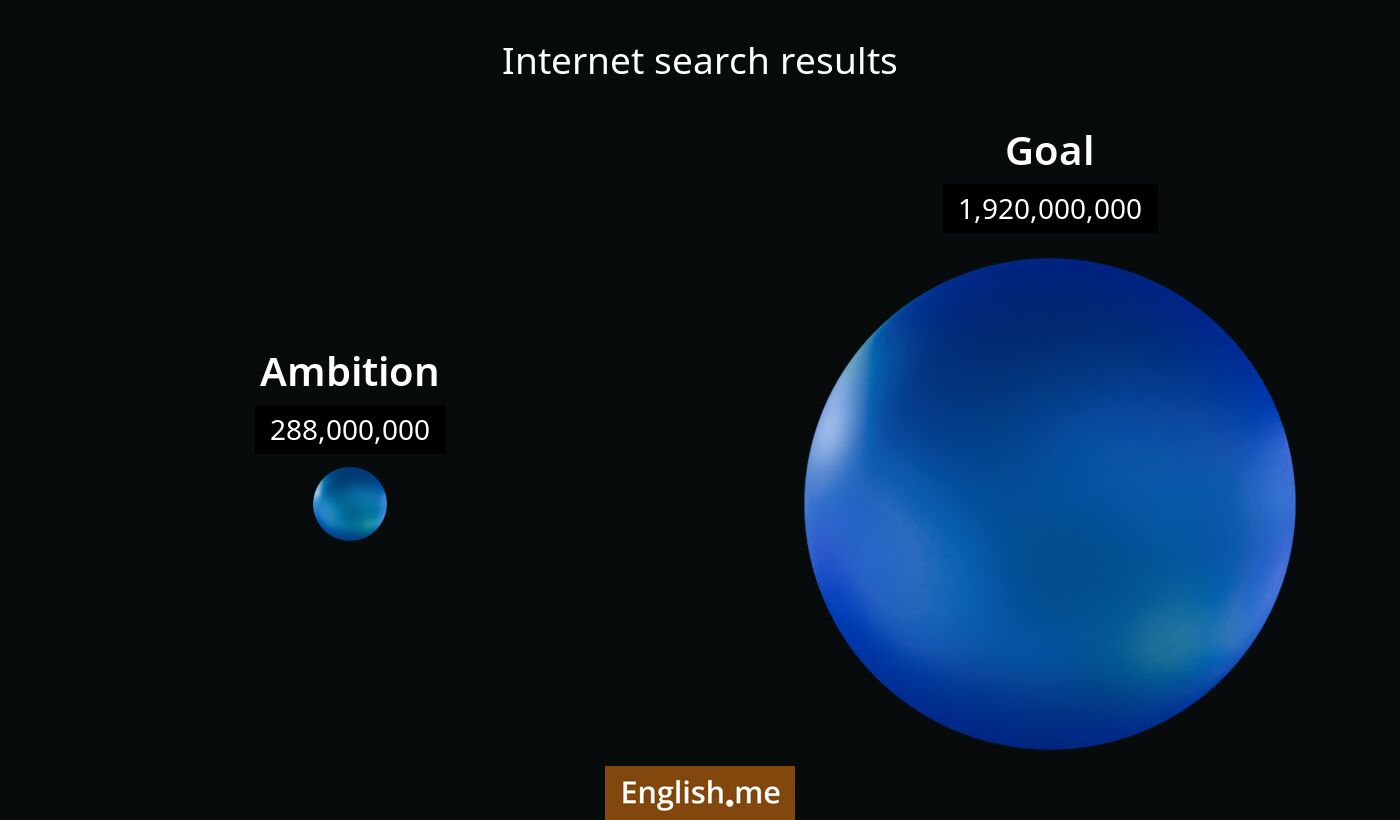"Ambition" vs. "goal": exploring the forces that drive us
Reviewed and edited by  Anwar Kareem 07/10/2024, 15:15
Anwar Kareem 07/10/2024, 15:15
English.me team member

 What is similar?
What is similar?
Both "ambition" and "goal" relate to aspirations and desired outcomes. They are often used in contexts where individuals strive for something they wish to achieve.
 What is different?
What is different?
"Ambition" refers to a strong desire to achieve something, typically requiring determination and hard work, and often implies a broader or longer-term drive. "Goal" refers to a specific target or objective that someone aims to achieve, usually more concrete and measurable.
 Which one is more common?
Which one is more common?

 Examples of usage
Examples of usage
Ambition- Her ambition is to become a successful entrepreneur.
- Ambition drove him to work tirelessly towards his dreams.
- Without ambition, progress is often stagnant.
- Her goal is to complete the marathon by next year.
- Setting clear goals can help improve focus and achievement.
- He reached his goal of saving enough money for a new car.

 English
English español
español française
française italiano
italiano deutsche
deutsche 日本語
日本語 polski
polski česky
česky svenska
svenska Türkçe
Türkçe Nederlands
Nederlands